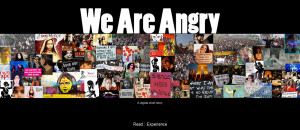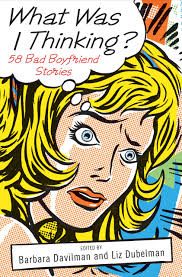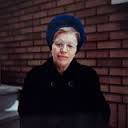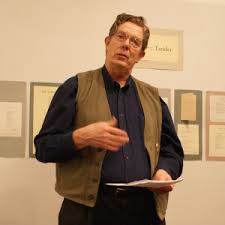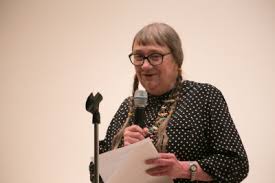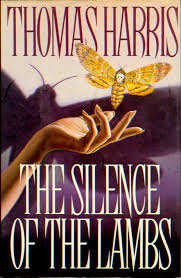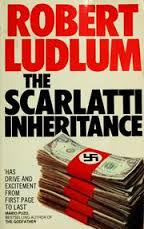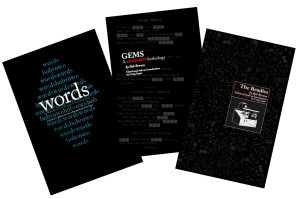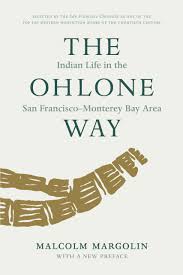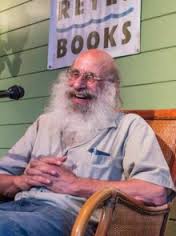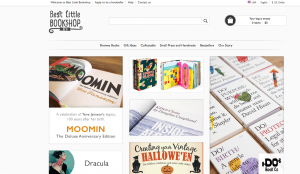David Wilk talks with Sherisse Hawkins from Beneath the Ink
June 22, 2015 by David
Filed under Ebooks and Digital Publishing, PublishingTalks, Technology, The Future
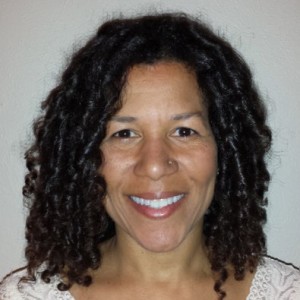 Publishing Talks began as a series of conversations with book industry professionals and others involved in media and technology about the future of publishing, books, and culture. As we continue to experience disruption and change in all media businesses, I’ve been talking with some of the people involved in our industry about how publishing might evolve as our culture is affected by technology and the larger context of civilization and economics.
Publishing Talks began as a series of conversations with book industry professionals and others involved in media and technology about the future of publishing, books, and culture. As we continue to experience disruption and change in all media businesses, I’ve been talking with some of the people involved in our industry about how publishing might evolve as our culture is affected by technology and the larger context of civilization and economics.
It’s my hope that these conversations can help us understand the outlines of what is happening in publishing and writing, and how we might ourselves interact with and influence the future of publishing as it unfolds.
Sherisse Hawkins is co-founder with Alex Milewski of Beneath the Ink, a Boulder, Colorado based ebook technology company. Beneath the Ink is working on what is likely the next phase in ebook development evolution, which is the provision of tools that enable authors and publishers to easily create ebooks with interactive content and multimedia resources. As Sherisse says in our interview, the story must and will remain the core of the book, but there are many types of books where the reading experience can be meaningfully expanded with the addition of expanded content.
This concept is not new of course, but what differentiates Beneath the Ink is the way their technology integrates the additional material to enable the reader to choose whether to engage or not, and making sure the presence of the option is not distracting to the reader. Their proprietary technology creates what they call “binks,” which contain the media content within the book file, as opposed to simply being a link out to the open web (which is, of course, also always enabled in epubs and mobi files). Another other key offering is to make it easy for creators to manage their own ebook media production process simply and easily.
I think it makes sense to enable this sort of feature in the digital reading experience. Not all readers want to “go deeper” or be taken out of the main text. But many others do. In a way it’s like having enhanced footnotes – and many of us do enjoy a good footnote to enhance our understanding of the text at hand. Fiction is another matter and is likely going to be a much greater challenge both for writers and for readers. But again, there are plenty of readers who do enjoy taking side trips from the main text, perhaps to better understand a character or a place inside a novel.
Beneath the Ink creates the tools for expanded reading experiences; of course, it remains to be seen how they are used and deployed by creators, and appreciated by readers. Aside from Binks, Beneath the Ink now has a new product called PageDip, which enables the one-click creation and has also created the option for users to offer their ebooks as hosted WebBooks, essentially untethering the reading experience from devices and apps, something that many in the ebook development world have been promoting for a number of years.
Beneath the Ink appeared on Shark Tank April 17, 2015! heavy.com did an interview with Sherisse about her appearance.
I like what this company is doing and have done some experimenting with their technology for my clients. I wanted to talk to Sherisse about her vision for the future of digital publishing and also to learn more about her experiences in creating technology and offering it to the publishing community. Beneath the Ink has done a great deal of research into the ways that readers prefer to interact with digital content and Sherisse and her team have developed their software accordingly. Her insights into the ways that digital reading is evolving are very worthwhile to hear.
Sherisse is the former VP of software development at Time Warner cable and was a Senior Electrical Engineer in the Walt Disney Imagineering Show and Ride division, responsible for the design, development, and installation of attractions in four major Disney theme parks. She received a BS degree in Engineering from the University of Arizona, and earned a Masters in Engineering Management from the University of Colorado. Alex Milewski is the other co-founder of Beneath The Ink. His background is in web and mobile application development using Javascript, PHP, CSS3, HTML5 and many other programming languages. Beneath the Ink is based in Boulder, Colorado.
Podcast: Play in new window | Download
David Wilk talks with Lyndee Prickitt about We Are Angry
June 7, 2015 by David
Filed under Ebooks and Digital Publishing, PublishingTalks, Technology, The Future
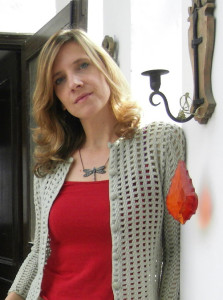 Lyndee Prickitt’s powerful and engaging storytelling project, We Are Angry, fits readily into both the categories of interviews I am doing here – she’s both the author of the (book) project as well as the primary publishing impressario who put together an innovative form of digital storytelling. But the interview does need to go into just one category, so I have chosen to call it a Publishing Talks interview. Publishing Talks began as a series of conversations with book industry professionals and others involved in media and technology about the future of publishing, books, and culture; Lyndee Prickett’s work is an important addition to that conversation.
Lyndee Prickitt’s powerful and engaging storytelling project, We Are Angry, fits readily into both the categories of interviews I am doing here – she’s both the author of the (book) project as well as the primary publishing impressario who put together an innovative form of digital storytelling. But the interview does need to go into just one category, so I have chosen to call it a Publishing Talks interview. Publishing Talks began as a series of conversations with book industry professionals and others involved in media and technology about the future of publishing, books, and culture; Lyndee Prickett’s work is an important addition to that conversation.
We Are Angry is a fictional response to the very real and difficult issues of rape and abuse of women in modern India.
From the We Are Angry website:
“After the brutal December 16, 2012 gang-rape in New Delhi, many people in India and beyond felt a need to express their anger, fears and concerns about why this was happening. Women and men took to the streets to put a voice to their anger. Social media swelled with introspection and pontification. Anonymous mourners created real life and online commemorations. Movie stars satirized and campaigned. Artists painted street walls and canvasses. Actors staged plays in local parks and international cultural festivals. Screenwriters wrote movies. Singers sang.
The conversation across the nation changed. Women and their rights was not just a matter for earnest do-gooders and NGOs, but the topic du jour and the inspiration for a panoply of expression for weeks and months. And then the din quietened. People tired of talking about how women, at home and abroad, have been and should be treated.
We Are Angry is an effort to keep the conversation alive – fusing traditional fictional text storytelling with other media, bolstered by real news content and annotations, and showcasing a range of art and expression from a team of people who want to harness their anger and work creatively for change.”
Lyndee Prickitt is a multimedia writer and journalist. She created her company, Digital Fables, to tell stories using the web as a platform. After working with Reuters and the BBC for more than 15 years, she wrote and produced the award winning digital short-story, Weareangry.net. Though a native Texan, Prickitt lives in New Delhi with her Indian husband and their daughter.
We Are Angry was nominated for a Webby, won the Transmedia Story of the Year from Digital Book World, and was a runner up in the New Media Writing Prize. The Guardian newspaper called it “devastatingly powerful.”
There has been a great deal of discussion within the international ebook community about whether digital storytelling will migrate away from devices and out to the web. What Lyndee Prickitt has done with We Are Angry is a powerful example of how this can be done. When you land on the site, you are immediately offered two options, one to “read” and the other to “experience” the story. I suspect most readers choose first to experience the story.
I really like what she says on the We Are Angry site about this project:
“We are living in mixed media times and yet rarely do we find the media coalescing in a truly integrated and artistic way, a way that could take storytelling – especially issue-based storytelling – to another level, not replacing books or the linear text experience, but offering another construct.
We Are Angry is an attempt, a humble first attempt, at doing this: creating 360 degree digital fiction.”
Listen to this interview, then visit the website and experience the story for yourself. Let me know what you think about it.
Podcast: Play in new window | Download
David Wilk talks with Liz Dubelman about Vidlit
May 26, 2015 by David
Filed under Ebooks and Digital Publishing, PublishingTalks, The Future
 Publishing Talks began as a series of conversations with book industry professionals and others involved in media and technology about the future of publishing, books, and culture. As we continue to experience disruption and change in all media businesses, I’ve been talking with some of the people involved in our industry about how publishing might evolve as our culture is affected by technology and the larger context of civilization and economics.
Publishing Talks began as a series of conversations with book industry professionals and others involved in media and technology about the future of publishing, books, and culture. As we continue to experience disruption and change in all media businesses, I’ve been talking with some of the people involved in our industry about how publishing might evolve as our culture is affected by technology and the larger context of civilization and economics.
I’ve now expanded the series to include conversations that go beyond the future of publishing. I’ve talked with editors and publishers who have been innovators and leaders in independent publishing in the past and into the present, and will continue to explore the ebb and flow of writing, books, and publishing in all sorts of forms and formats, as change continues to be the one constant we can count on.
It’s my hope that these conversations can help us understand the outlines of what is happening in publishing and writing, and how we might ourselves interact with and influence the future of publishing as it unfolds.
My friend, and sometimes colleague, Liz Dubelman is the founder and CEO of VidLit Productions, LLC, a renowned and well regarded book marketing and content-creating company. I’ve been a big fan of her work for a long time, since first coming across her wonderful and hilarious video promotion for the really fun book, Yiddish With Dick and Jane by Ellis Weiner and Barbara Davilman. In fact that video was one of the very earliest book trailers, and was certainly one of the best and most successful of the many that have followed it. As soon as I saw it, I quickly sought out Liz, and discovered how smart she is about online content and communities, and over the years we have collaborated on a number of projects.
From 2011 – 2013 Liz was VP, Production for JibJab Media, the pioneering digital entertainment company that specializes in personalized social expression and has provided laughs to 100 million users worldwide.
Liz co-edited and contributed to What Was I Thinking? 58 Bad Boyfriend Stories, which was based on the VidLit series of the same name. She is also a magazine writer of both fiction and nonfiction. Well over a million people have viewed her short story Craziest on the Web.
Prior to her digital career, she worked for ten years in film production. Her television work won her two Emmys – one as a producer and one as a director. She was the first woman member of the labor negotiating committee of I.A.T.S.E., New York local 644 (cinematographers), and is an establishing member of Women in New Technology.
Liz is now taking Vidlit into new areas of online book marketing and publishing. Vidlit is providing authors with a platform to help them with the challenging and complicated task of self promotion. The supposition, which seems correct to me, is that authors are often best at writing, and while in today’s publishing environment, they need to think about and act like marketers, that is not their core competency, and they will almost always need creative, intelligent and friendly helpers to do this kind of work for them. Vidlit comes from a writer’s imagination and mindset. Liz wants to make writers successful, bring their stories to audiences and she has a good track record of understanding how online media can work. What she has to say about writers and readers interacting in the new media environment is an ideal topic for a Writerscast interview.
I like the simplicity of Vidlit’s mission statement:
“…to make fiction and creative non-fiction indispensable. It’s our belief that stories help our lives to make sense.”
Podcast: Play in new window | Download
David Wilk talks with Anne Kingsbury and Karl Gartung about Woodland Pattern
May 11, 2015 by David
Filed under Publishing History, PublishingTalks
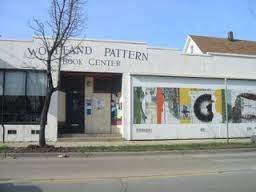 Publishing Talks began as a series of conversations with book industry professionals and others involved in media and technology about the future of publishing, books, and culture. As we continue to experience disruption and change in all media businesses, I’ve been talking with some of the people involved in our industry about how they believe publishing might evolve as our culture is affected by technology and the ebb and flow of civilization and economics.
Publishing Talks began as a series of conversations with book industry professionals and others involved in media and technology about the future of publishing, books, and culture. As we continue to experience disruption and change in all media businesses, I’ve been talking with some of the people involved in our industry about how they believe publishing might evolve as our culture is affected by technology and the ebb and flow of civilization and economics.
I’ve now expanded the series to include conversations that go beyond the future of publishing. I’ve spoken with editors and publishers who have been innovators and leaders in independent publishing in the past and into the present, and will continue to explore the ebb and flow of writing, books, and publishing in all sorts of forms and formats, as change continues to be the one constant we can count on.
It’s my hope that these conversations can help us understand the outlines of what is happening in book publishing and writing, and how we might ourselves interact with and influence the future of book publishing as it unfolds. This new interview reflects my interest in the history of independent literary publishing, an area in which I have been active for a long time. And this particular conversation reflects some longstanding personal relationships as well.
Woodland Pattern is a nonprofit literary arts center founded by artist Anne Kingsbury and poet Karl Gartung in 1979. It has been an incredible resource for readers and writers during all that time, committed to community and the arts in a way that may be unique in America. I’ve known Anne and Karl since before they started Woodland Pattern, and we have long shared many interests in writers and writing that we admire and are inspired by.
Anne and Karl chose the name for the place from a passage in (the extraordinary) Paul Metcalf’s wonderful and neglected book, Apalache, that describes the woodland culture of native Americans living south of Lake Superior – they had “pottery but not agriculture.” Karl and Anne’s extreme dedication, hard work, and commitment to their founding vision is at the heart of the institution, but of course over nearly 40 years, its work has been furthered by dozens of volunteers and now paid staff, as well as hundreds of writers and artists and of course thousands of supporters in its community.
The center houses a bookstore with over 25,000 independently published literary and arts titles otherwise unavailable in Milwaukee – or anywhere else it would seem. Woodland Pattern has always made inventory decisions for noncommercial reasons. As they say about themselves: “as booksellers and as presenters of art and literature, we want people to know that there is more than what you see at your chain book store, more than you are taught in school, more than what is reviewed in the papers. We hope to act as a catalyst, putting readers together with small press literature.”
Their space now also includes an art gallery where they present a wide range of exhibitions, artist talks, readings, experimental films, concerts and writing workshops for adults and children.
Anne Kingsbury is also an incredible artist whose work can be found in museums, galleries and private collections. She too is an American original. Karl Gartung is a poet who has worked full time as a truck driver (and union leader) for more than 35 years. His commitment to poetry lived in daily life is inspiring.
Woodland Pattern has also been a leader in promoting writers from Wisconsin, most notably, Lorine Niedecker, a Wisconsin native from nearby Fort Atkinson whose work, rooted and grown in that place through years of hard work, is finally being recognized as among the finest poetry of our era.
I am in awe of the work that has been accomplished over the past 35 years by Anne, Karl and everyone else at Woodland Pattern. They have made the acts of curation and presentation of art and literature in many forms into a lifelong effort. They engender and foster great art and connect living artists to communities of individuals, not as consumers, but as active participants in the work itself. This is brilliant, and should be celebrated for the depth and breadth of the work the organization has supported for so many years.
It was my great pleasure to speak with Anne and Karl about Woodland Pattern and their work and lives while they were visiting New York in spring 2015. As you can tell when you listen, this was a conversation among old friends with much shared history and common interests that I hope will inspire many of you to visit Woodland Pattern in Milwaukee (or at least their website here until you cam get there in person).
Woodland Pattern Book Center is a 501(c)(3) tax-exempt non-profit organization.
Here is their inspiring mission statement: “Our goals are to promote a lifetime practice of reading and writing, to provide a forum and resource center for writers/artists in our region, and to increase and diversify the audience for contemporary literature through innovative approaches to multi-arts programming.”
Podcast: Play in new window | Download
David Wilk talks with editor/writer Richard Marek
April 5, 2015 by David
Filed under Publishing History, PublishingTalks
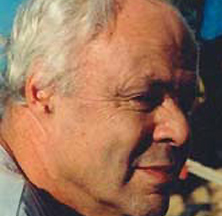 Publishing Talks began as a series of conversations with book industry professionals and others involved in media and technology about the future of publishing, books, and culture. As we continue to experience disruption and change in all media businesses, I’ve been talking with some of the people involved in our industry about how they believe publishing might evolve as our culture is affected by technology and the ebb and flow of civilization and economics.
Publishing Talks began as a series of conversations with book industry professionals and others involved in media and technology about the future of publishing, books, and culture. As we continue to experience disruption and change in all media businesses, I’ve been talking with some of the people involved in our industry about how they believe publishing might evolve as our culture is affected by technology and the ebb and flow of civilization and economics.
I’ve now expanded the series to include conversations that go beyond the future of publishing. I’ve talked with editors and publishers who have been innovators and leaders in independent publishing in the past and into the present, and will continue to explore the ebb and flow of writing, books, and publishing in all sorts of forms and formats, as change continues to be the one constant we can count on.
It’s my hope that these conversations can help us understand the outlines of what is happening in publishing and writing, and how we might ourselves interact with and influence the future of publishing as it unfolds. This new interview reflects my interest in the history of independent literary publishing, an area in which I have been active for a long time. And this particular conversation reflects some longstanding personal relationships as well.
Richard Marek’s career in publishing began as an acquiring editor at Macmillan; he went on to World Publishing in 1967, and became Editor-in-Chief at The Dial Press in 1972. He acquired the manuscript of a first novel called The Scarlatti Inheritance by the then unknown author named Robert Ludlum, worked on it with him for over two years, and of course it later became a national bestseller. Marek edited Ludlum’s next eight books, including The Bourne Inheritance. He acquired and edited books by more than 100 writers, including James Baldwin, Mira Rothenberg, John Yount and David Morrell. In 1978, he was given his own imprint (“Richard Marek Publishers”) at G.P. Putnam’s, and moved it to St. Martin’s Press (“St. Martin’s/Marek”) where, among many other books, he acquired Thomas Harris’ The Silence of the Lambs and Robert Greysmith’s Zodiac. In 1989, Marek became President and Publisher of E.P. Dutton, where he edited a number of bestselling books.
After Dutton became a subsidiary of Viking/Penguin, Marek moved to Crown as Editor-at-Large and thereafter became an independent editor, evaluating manuscripts, editing and ghostwriting, which he calls “a glorious and rewarding career.”
In the past 10 years, he has edited some 120 books, working for publishers, agents, and unrepresented writers. And he has also become an in-demand ghostwriter. He reports that he enjoys writing mornings and editing during afternoons.
Richard is now the ghostwriter of fourteen books, fiction and nonfiction, among them Trisha Meili‘s I Am the Central Park Jogger (a national bestseller), James Patterson’s Hide and Seek (a national bestseller), Brian Weiss’ Same Soul, Many Bodies, Ilanna Rubenfeld’s The Listening Hand, David Grand’s Emotional Healing at Warp Speed, and David Hackworth’s Steel My Soldiers’ Hearts.
And I am happy to say that I have had the opportunity to publish a lovely novel authored by Richard and his wife, the writer Dalma Heyn. It’s a love story for grown ups called A Godsend.
Dick is an active member of the Independent Editors Group – more about him and that organization here.
For this Publishing Talks series, I thought it would be fun and valuable to talk to Dick about the past, present and future of publishing from his unique perspective. His long and successful experience in commercial and literary publishing as editor, publisher, and now writer, provides him with an amazing depth of knowledge and an unending well of anecdotes and stoies. What he has to say during our conversation in his home will not disappoint. He is a great conversationalist with important things to say about book publishing.
Podcast: Play in new window | Download
David Wilk talks with Doug Messerli of Green Integer
February 21, 2015 by David
Filed under Ebooks and Digital Publishing, Publishing History, PublishingTalks
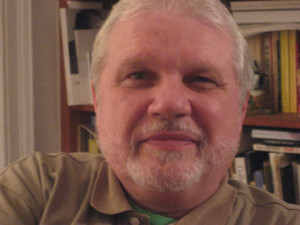 Publishing Talks began as a series of conversations with book industry professionals and others involved in media and technology about the future of publishing, books, and culture. As we continue to experience disruption and change in all media businesses, I’ve been talking with some of the people involved in our industry about how publishing might evolve as our culture is affected by technology and the larger context of civilization and economics.
Publishing Talks began as a series of conversations with book industry professionals and others involved in media and technology about the future of publishing, books, and culture. As we continue to experience disruption and change in all media businesses, I’ve been talking with some of the people involved in our industry about how publishing might evolve as our culture is affected by technology and the larger context of civilization and economics.
I’ve now expanded the series to include conversations that go beyond the future of publishing. I’ve talked with editors and publishers who have been innovators and leaders in independent publishing in the past and into the present, and will continue to explore the ebb and flow of writing, books, and publishing in all sorts of forms and formats, as change continues to be the one constant we can count on.
It’s my hope that these Publishing Talks can help us understand the outlines of what is happening in publishing and writing, and how we might ourselves interact with and influence the future of publishing as it unfolds.
Douglas Messerli is an old friend in poetry and publishing – I’ve known him since sometime in the late 1970’s. He’s one of the most prolific writers and publishers I know of, with an encyclopedic mind and a scope of interests that is virtually unmatched (and how much he writes and how well…it is hard for me to fathom how he does so much and is so consistently intelligent and perceptive on so many subjects!)
Although his writing is inevitably interwoven with his publishing work, this conversation is mainly focused on Doug’s efforts over the years as an editor and publisher. So we talked about his first publishing projects, Sun & Moon (magazine and books), La-Bas (magazine) and then his more recent work with the highly prolific Green Integer. It’s a wide ranging conversation reflecting Doug’s broad interests in writing, art, and publishing, and his always deeply engaged intellect.
Doug, his partner Howard Fox, and Green Integer are strongly identified with Los Angeles and the literary and art scene there. But the influence of his work extends worldwide. The level and intensity of engagement with readers, writers and artists reflects an intentional process on Messerli’s part – he invites the reader to participate in every aspect of his creative process, both in writing and in presenting the work of innovative writers and artists across a wide range of aesthetics and backgrounds, generations and geography. That’s why, for a long period of time, Messerli ran a public gallery and salon in Los Angeles to reach beyond publishing, and why Green Integer is so thoroughly digital in its publishing model.
His is a decidedly modern, globally engaged effort that is unmatched in contemporary publishing.
Length alert: this interview is almost exactly an hour long. It went by really fast for me, and I hope you find listening to Doug Messerli as interesting as I did.
The Green Integer website is exceptional. Go there now for an incredible array of interesting, complicated and challenging writing with a deeply international and avant garde focus.
A nice bit of Sun & Moon history here at SUNY Buffalo’s archive.
And a wonderful collection of free PDFs of La-Bas here at the incredibly rich Jacket2 website.
I love Doug’s essay on Bob Brown (a poet I first heard of through Jerry Rothenberg) on a website I recommend visiting right away –Hyperallergenic.
And to extend the conversation further, here is an exceptionally interesting interview published on Harriet, the blog of the Poetry Foundation (which recursively enough is entitled: Republished Douglas Messerli Interview on Green Integer Blog).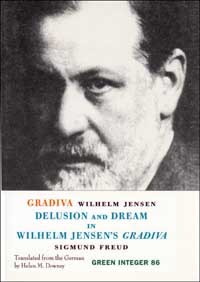
Podcast: Play in new window | Download
David Wilk talks with Dominique Raccah of Sourcebooks
February 1, 2015 by David
Filed under Ebooks and Digital Publishing, Publishing History, PublishingTalks, Technology, The Future
 Publishing Talks began as a series of conversations with book industry professionals and others involved in media and technology about the future of publishing, books, and culture. As we continue to experience disruption and change in all media businesses, I’ve been talking with some of the people involved in our industry about how publishing might evolve as our culture is affected by technology and the larger context of civilization and economics.
Publishing Talks began as a series of conversations with book industry professionals and others involved in media and technology about the future of publishing, books, and culture. As we continue to experience disruption and change in all media businesses, I’ve been talking with some of the people involved in our industry about how publishing might evolve as our culture is affected by technology and the larger context of civilization and economics.
I’ve now expanded the series to include conversations that go beyond the future of publishing. I’ve talked with editors and publishers who have been innovators and leaders in independent publishing in the past and into the present, and will continue to explore the ebb and flow of writing, books, and publishing in all sorts of forms and formats, as change continues to be the one constant we can count on.
It’s my hope that these conversations can help us understand the outlines of what is happening in publishing and writing, and how we might ourselves interact with and influence the future of publishing as it unfolds.
Dominique Raccah is the founder and CEO of independent publisher Sourcebooks, based in Naperville, Illinois, which she began in 1987 after an earlier career in advertising. Reflecting Raccah’s background and interests, Sourcebooks has always been strongly oriented toward marketing and promotion, devoting countless hours and dedicating significant resources to research, intelligence and outreach, and to understanding what customers want. This significantly differentiates Sourcebooks from most other independent publishers, so many of whom are more focused on developing content as opposed to what the customer needs or wants.
But Raccah is more than a smart marketer. She is a highly capable business person, an active entrepreneur, and somewhat of a visionary in terms of technology, business structure. She has been and continues to be willing and able to pivot on her business models and plans much more quickly and readily than most of her peers.
At this stage, after more than a quarter century of successful innovation, she has become a thought leader in the book industry and her presentations about publishing and business structure and opportunities are often models of clarity and deep perception, that are valued by colleagues and competitors alike. In November 2013 she was named FutureBook’s Most Inspiring Digital Publishing Person of 2013.
Indicative of the ways Raccah has embraced technology to drive her business forward, in an interview with the Chicago Tribune last year she said that digital technology “has been transformative because it allows you to tackle new kinds of problems and create new ways of connecting books and readers.”
In our conversation, which took place in New York City in January, 2015, we covered a wide range of topics, from the history of Sourcebooks, through the present business and publishing landscape that interests and motivates Dominique as she continues to moves her company forward in a highly challenging environment. Much of our conversation focuses on Raccah’s industry leading efforts to work directly with readers to make Sourcebooks’ publishing brands meaningful to readers, and to learn directly what consumers want in their reading experiences. After a concerted effort over the past few years, Sourcebooks is now one of the leaders in the book industry in selling books directly to readers. It was a pleasure speaking with Dominique – who gives a great interview – and I hope this is a conversation that will be both useful and valuable to anyone interested in contemporary publishing.
Sourcebooks features a long list of innovative and successful publishing programs and projects, including Poetry Speaks, The Shakesperience, an interactive iBook that combines audio, video and a glossary to aid understanding of Shakespeare’s plays, and Put Me In The Story, which customizes children’s picture books with the reader’s own name and photos to get kids excited about reading.
Raccah has a master’s degree in quantitative psychology from the University of Illinois at Chicago Circle and worked at Leo Burnett’s quantitative research department before starting Sourcebooks in her home in 1987.
Sourcebooks now has 120 employees, eight imprints and publishes more than 350 titles annually, several of which have been national best-sellers in recent years.
Some worthwhile links:
Dominique’s TedX slideshare The Book in Transformation: A Publisher Vision for the Future
Chicago Tribune interview with Dominique Raccah
Mercy Pilkington article Sourcebooks Dominique Raccah Speaks on Driving Innovation
Put Me in the Story site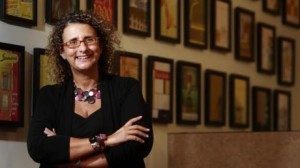
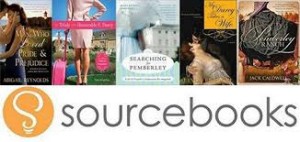
Podcast: Play in new window | Download
David Wilk talks with Malcolm Margolin of Heyday Books
January 11, 2015 by David
Filed under Publishing History, PublishingTalks
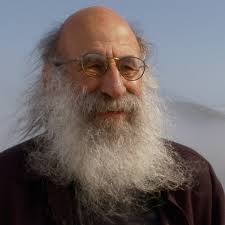 I think of Malcolm Margolin and Heyday Books as one of the iconic independent publishers of the modern era. Founded in 1974 in Berkeley, then and now a hotbed of independent publishing, Heyday began because Malcolm had written a book about walking in the East Bay called East Bay Out and wanted to publish and sell it himself as a locally based book. Its somewhat unexpected success led to his work on a book called The Ohlone Way, about native Americans of California, and by then Heyday was on its way to becoming an important cultural node that over its forty years has produced more than 350 titles.
I think of Malcolm Margolin and Heyday Books as one of the iconic independent publishers of the modern era. Founded in 1974 in Berkeley, then and now a hotbed of independent publishing, Heyday began because Malcolm had written a book about walking in the East Bay called East Bay Out and wanted to publish and sell it himself as a locally based book. Its somewhat unexpected success led to his work on a book called The Ohlone Way, about native Americans of California, and by then Heyday was on its way to becoming an important cultural node that over its forty years has produced more than 350 titles.
The history of Heyday is documented in its newly published The Heyday of Malcolm Margolin: The Damn Good Times of a Fiercely Independent Publisher. The book, compiled by Heyday editor Kim Bancroft, is a wonderful collection of oral histories told by Margolin, his family, authors, friends, current and former staffers and some of the many Californians that have been involved with the press and its cultural work for so many years.
This book is a must read for anyone interested in the history of independent publishing and especially the inspiring Bay Area publishing movement of the last half century. Malcolm is truly one of the great story tellers of our time. Unassuming and irreverent, he is now experienced enough to have become an elder statesman, much loved by all who have worked with him.
Heyday is now a well-run and highly respected nonprofit organization. It has produced a significant body of work, and as an ongoing operation, it reflects the values and beliefs of its founder. Heyday, like Malcolm, is committed to the voices of authors, the beauty and power of California as place, and valuing culture as lived by individuals, more important than institutions. And the quality of the work has always been paramount. Every book produced by Heyday displays a high level of care and attention, learned and practiced over many years.
Heyday board member and former staffer Patricia Wakida describes the quintessential image of Margolin getting into his 1997 Volvo to drive to California’s high country to hear yet another story around the campfire. “That’s what it’s all about,” she says. “Forty years of listening.”
I’m proud to offer this conversation with Malcolm, which gives you the singular opportunity to hear his wonderful voice and persona, to get a sense of why Malcolm and Heyday are so important and meaningful to so many – and what an impact a truly independent publisher can have.
Running time: 47 minutes. Enjoy!
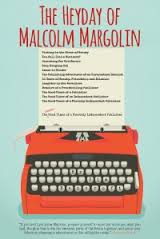
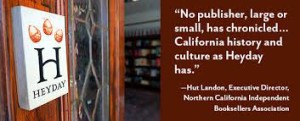
Podcast: Play in new window | Download
David Wilk talks to Kieron Smith about The Best Little Bookshop
October 2, 2014 by David
Filed under PublishingTalks, The Future
 Publishing Talks began as a series of conversations with book industry professionals and others involved in media and technology about the future of publishing, books, and culture. As we continue to experience disruption and change in all media businesses, I’ve been talking with some of the people involved in our industry about how they believe publishing might evolve as our culture is affected by technology and the ebb and flow of civilization and economics.
Publishing Talks began as a series of conversations with book industry professionals and others involved in media and technology about the future of publishing, books, and culture. As we continue to experience disruption and change in all media businesses, I’ve been talking with some of the people involved in our industry about how they believe publishing might evolve as our culture is affected by technology and the ebb and flow of civilization and economics.
I’ve now expanded the series to include conversations that go beyond the future of publishing. I’ve talked with editors and publishers who have been innovators and leaders in independent publishing in the past and into the present, and will continue to explore the ebb and flow of writing, books, and publishing in all sorts of forms and formats, as change continues to be the one constant we can count on.
It’s my hope that these conversations can help us understand the outlines of what is happening in publishing and writing, and how we might ourselves interact with and influence the future of publishing as it unfolds.
UPDATE: as of January 27, 2015, it was announced that (sadly) Best Little Bookshop will be closing and Kieron Smith moving on to other pursuits. Still, this discussion ought to remain interesting to anyone who is thinking about bookselling and consumer interaction with books.
Kieron Smith is a long time bookseller and founder of the new online bookstore, The Best Little Bookshop. This new site takes a different approach to online retail book selling than others have done. There is much more emphasis on curation, more in-depth presentation of books and publishers, social interaction onsite from customers, and importantly, the participation of other booksellers from the outset. And the store, while based in the UK, is friendly to buyers from other countries. I’ve spent a fair amount of time playing around with BLB, and for me, it’s a great experience. I’ve discovered books and publishers I’ve never heard of and that I am interested in reading and buying. I’m looking forward to seeing how Kieron and his team integrate other booksellers into the store experience and how its community of users will influence the direction the store takes in the future.
Best Little Bookshop is clear evidence that it is possible to create new models of retail book selling online. The store launched in summer 2014, so as of now, there are still features in development, and doubtless more changes and improvements to come. My conversation with Kieron was exciting for me, as I see so much potential with this site for publishers, authors and readers, and wanted to hear first hand how the founder views the future. One interesting point – no ebooks here, just print.
Alert: this is a relatively long interview at 41 minutes. Take your time and enjoy!
Kieron Smith has over 17 years of book trade experience, starting with WHSmith Retail, establishing the multi-channel Ottakars.co.uk website in 1999, heading up the web offering at BCA and operations at Methven’s Booksellers, followed by three years outside the industry at Europe’s leading video games website GAME.co.uk. Head of online for Waterstones.com in 2006-7 and then MD of international online book retailer The Book Depository (purchased by Amazon in 2011) for five years until November of 2013. The Book Depository was acquired by Amazon.com in 2011.
Podcast: Play in new window | Download
David Wilk talks with Andrew Lipstein about 0s and 1s
July 20, 2014 by David
Filed under Ebooks and Digital Publishing, PublishingTalks, The Future
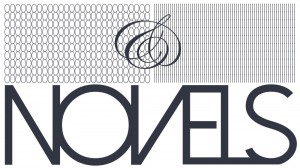 Publishing Talks began as a series of conversations with book industry professionals and others involved in media and technology about the future of publishing, books, and culture. As we continue to experience disruption and change in all media businesses, I’ve been talking with some of the people involved in our industry about how they believe publishing might evolve as our culture is affected by technology and the ebb and flow of civilization and economics.
Publishing Talks began as a series of conversations with book industry professionals and others involved in media and technology about the future of publishing, books, and culture. As we continue to experience disruption and change in all media businesses, I’ve been talking with some of the people involved in our industry about how they believe publishing might evolve as our culture is affected by technology and the ebb and flow of civilization and economics.
I’ve now expanded the series to include conversations that go beyond the future of publishing. I’ve talked with editors and publishers who have been innovators and leaders in independent publishing in the past and into the present, and will continue to explore the ebb and flow of writing, books, and publishing in all sorts of forms and formats, as change continues to be the one constant we can count on.
It’s my hope that these conversations can help us understand the outlines of what is happening in publishing and writing, and how we might ourselves interact with and influence the future of publishing as it unfolds. This new interview reflects my interest in the history of independent literary publishing, an area in which I have been active for a long time. And this particular conversation reflects some longstanding personal relationships as well.
Andrew Lipstein is one of the new wave of writers interested in changing the way books are published, distributed and read. When I first read about his new venture 0s and 1s, I was immediately interested (that’s “zeroes and ones” – I misread it initially as “os and 1s” and you will hear that in my interview with Andrew). 0s and 1s is a curation project, offering ebooks for download at very attractive prices selected from a limited number of like-minded independent publishers. It is diametrically opposed to the way we have been trained to think about ebook retailing, where for the most part, readers are tied to the ecosystems created by the platform owners.
For example, if you are a Kindle reader, you buy all your ebooks from Amazon, for example, and whether you know it or not, or care or not, your choices of what to read, or what to think about reading, are highly contextualized. Online ebook stores have incredible limitations, and ironically, the huge breadth of titles potentially available to readers ultimately mean a hegemonically limited selection of reading possibilities.
As Andrew states on the 0s and 1s site: “The selling of digital books has become an oligopoly, with only a few important players—& a lot of power. The world of e-reading shouldn’t be proprietary to any one brand, reader, or (set of) publishers. Selling a digital book is as simple as transmitting a series of zeroes & ones, & there’s never been a better time to take advantage of that fact.”
Personally, I think it’s an opportune moment for publishers and writers to start experimenting with alternative models of engaging with readers. Andrew and the publishers and authors he is promoting here deserve credit and support for taking a necessary step toward demonstrating how we might imagine alternatives to big box retail book selling and a better way to promote a culturally diverse and meaningful reading culture. 0s and 1s is aware of the need to explain to readers what it’s doing by selling all its ebooks at $6 each and has a very clear explanation of why this is good for authors on its website.
Andrew Lipstein is a writer too, and also curates a really interesting micro-publishing site, well worth a visit, called Thickjam.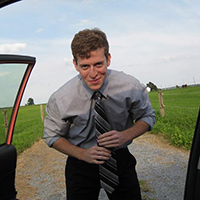
In many ways this project reminds me of some of the experiments in independent book distribution and marketing from the seventies (many supported by what was then called CCLM, the Coordinating Council of Literary Magazines – now called CLMP – with a grant from the Ford Foundation). Some of those projects were highly influential and in various forms lasted for a number of years. I hope we can say the same about 0s and 1s in the future.
If you’re interested in the history of CCLM and CLMP and the organization’s key role in supporting independent magazine and book publishers, there is a nice bit of history here. The Publishing Talks interview with CLMP’s current dynamic director Jeffrey Lependorf is here. You can find links to publishers participating in the 0s and 1s project here. One of the several distribution projects funded by CCLM and the Ford Foundation was Truck Distribution Service, started in St. Paul, MN, by yours truly, which later became the very successful small press wholesaler, Bookslinger, and another was the still flourishing Writers and Books, founded in Rochester, NY, by Joe Flaherty.
Thanks to John Marshall Media and engineer Nathan Rosborough for this recording.
Podcast: Play in new window | Download

